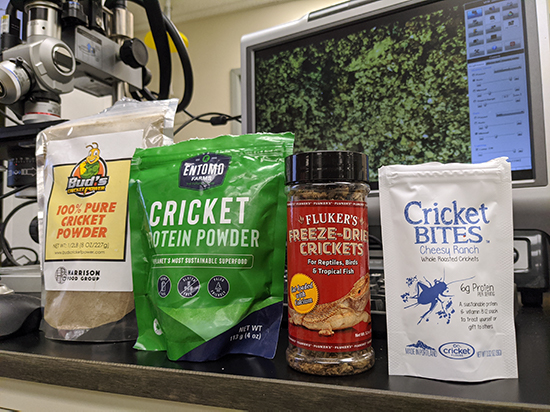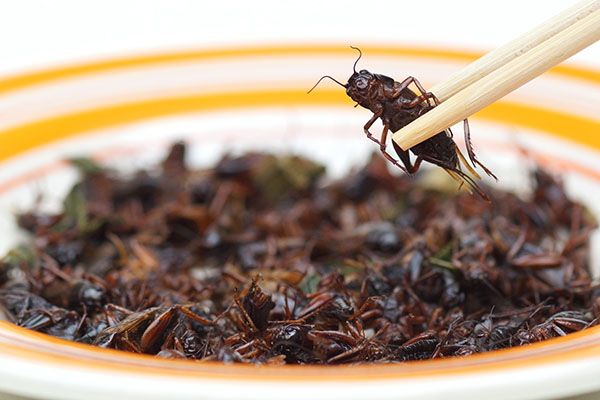
A Polish official is proposing an anti-bug law that will require food products in groceries to come with warning labels if they contain insects.
Janusz Kowalski explained that the bill aims to properly inform Polish consumers about bug additives in food products, which are increasingly being introduced worldwide as an alternative source of protein. Kowalski, a member of the Sejm (parliament) for the United Poland party, is the secretary of state (deputy minister) for the Ministry of Agriculture and Rural Development.
The proposal came amid a recent campaign by the ruling conservative coalition government, the United Right – which includes the United Poland party – to bring to light efforts by moderate, liberal, left-wing and other opposition groups to restrict traditional meat consumption and make Poles eat insects instead. Polish opposition groups have denied that there are such plans. (Related: Poland's liberals could start a CIVIL WAR if they regain power in 2023 election, warns conservative leader.)
Under Kowalski's proposed law, products with insects must include a label stating: "Warning, this food product contains insect protein."
"Dried mealworm larvae, powdered cricket – these are among the insects that the Eurocrats and Rafal Trzaskowski [opposition mayor of Warsaw] call 'new food,'" said Kowalski during the unveiling of the proposed legislation in the Sejm. "That is why we, United Poland, have initiated the preparation of legal regulations … that will give Polish consumers clear knowledge about food products containing so-called bug additives. This is an anti-bug law."
"If Rafal Trzaskowski wants to eat mazurek [traditional Polish Easter cake] made of dried insects, he has the right to do so," added Kowalski. "We, as conservatives, as Poles, definitely prefer normal Polish food, Polish meat, Polish dairy products."
The proposed anti-bug law has been heralded as a positive step in Poland toward protecting the country's consumers and providing them with full transparency regarding the potential inclusion of insect proteins in their food. It has also been lauded as a way to preserve the country's traditional culinary cultures and as a bill that can have a positive impact on the health and well-being of Polish citizens.
This is especially true as recent surveys of potential Polish voters show that, among supporters of the ruling government coalition, 45 percent say they believe the liberal opposition could introduce restrictions on meat consumption if they win the upcoming parliamentary election in November.
Proposals to include insects in European diets growing
Similar "anti-bug" laws are making their way through the national legislatures of other European countries, including Hungary and Italy – both of which have strong, conservative governments.
In January, the European Commission, the main executive body of the European Union, approved products made from mealworm larvae and house crickets as safe for consumption.
Another initiative involving Warsaw also recommended cutting meat consumption as part of efforts to reduce emissions and fight the so-called climate crisis. This comes from the C40 Cities Climate Leadership Group, an international organization of nearly 100 cities around the world – of which Warsaw is a member – that proposes initiatives to combat so-called climate change.
Conservative media outlets in Poland have pointed out that Warsaw's membership with the C40 Group puts the city's Polish residents at risk of being involved in efforts to curb meat consumption – especially since the city's mayor, Trzaskowski, has regularly attended and spoken at the organization's events.
Learn more about the increasing attempts to normalize the consumption of insect protein at CricketProtein.news.
Watch this episode of the "Health Ranger Report" as Mike Adams, the Health Ranger, discusses the real, dangerous contents of edible insects.
This video is from the Health Ranger Report channel on Brighteon.com.
More related stories:
Polish gov't minister proposes "anti-bug" law requiring labels for foods that contain INSECTS.
Italy BANS bugs from being used in pasta and pizza – sorry, Klaus!
Elementary school kids in the Netherlands BRAINWASHED to eat worms.
British government funding experiments that involve feeding African children INSECTS.
Sources include:
Please contact us for more information.















